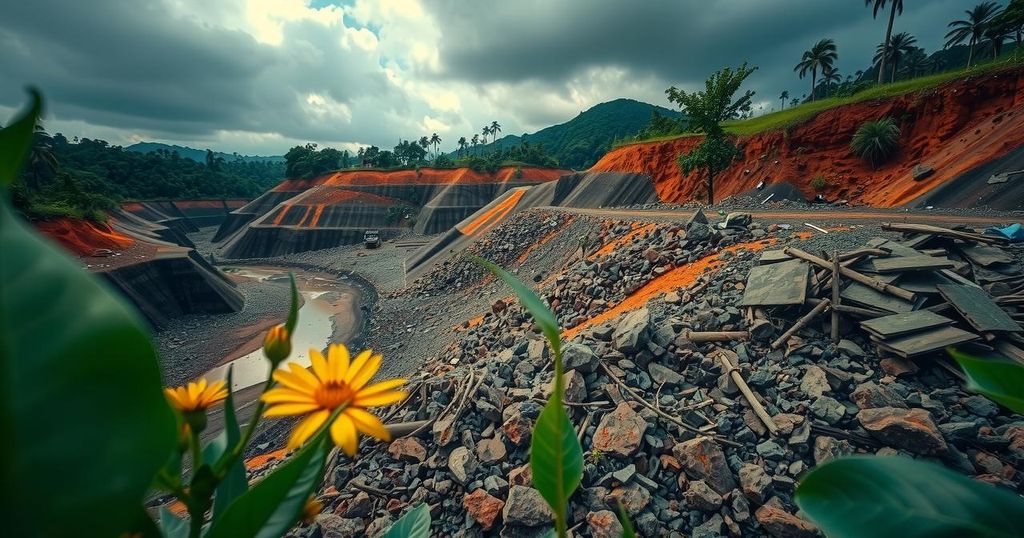The Rising Crisis of Illegal Gold Mining in Ghana
Illegal gold mining in Ghana, known as Galamsey, has surged in 2023 with global gold prices rising nearly 30%. Around 70-80% of small mines are unlicensed, producing approximately 1.2 million ounces of gold so far this year. This issue is becoming increasingly pertinent amid the country’s election preparations and raises significant environmental and governance concerns.
In Ghana, illegal gold mining has escalated significantly, especially in the wake of a nearly 30% surge in global gold prices this year. Despite military initiatives aimed at curbing these activities, it is estimated that 70-80% of small-scale mining operations lack proper licenses. So far this year, these unlicensed mines have produced approximately 1.2 million ounces of gold. This practice, referred to as “Galamsey,” has become a pressing issue, particularly as the nation approaches its election period. The ongoing challenge of illegal mining raises serious concerns regarding environmental sustainability and governance in the region.
Illegal gold mining in Ghana, commonly known as Galamsey, has been a significant issue within the country’s mining sector. As global gold prices rise, more individuals engage in unregulated mining activities, leading to environmental degradation and social unrest. Approximately 70-80% of small mines operate without official licenses, raising questions about governance, legality, and the economic implications of these operations. The relationship between illegal mining and corruption within local administrations further complicates efforts to address the problem.
Illegal gold mining in Ghana poses substantial risks to the environment and the efficacy of governance. With a large percentage of small-scale mines operating without licenses, the implications reach far beyond economic gains, affecting the country’s ecological integrity and political stability. As the country prepares for upcoming elections, addressing these mining issues will be crucial in fostering sustainable development and restoring public trust in governmental institutions.
Original Source: www.bbc.co.uk




Post Comment